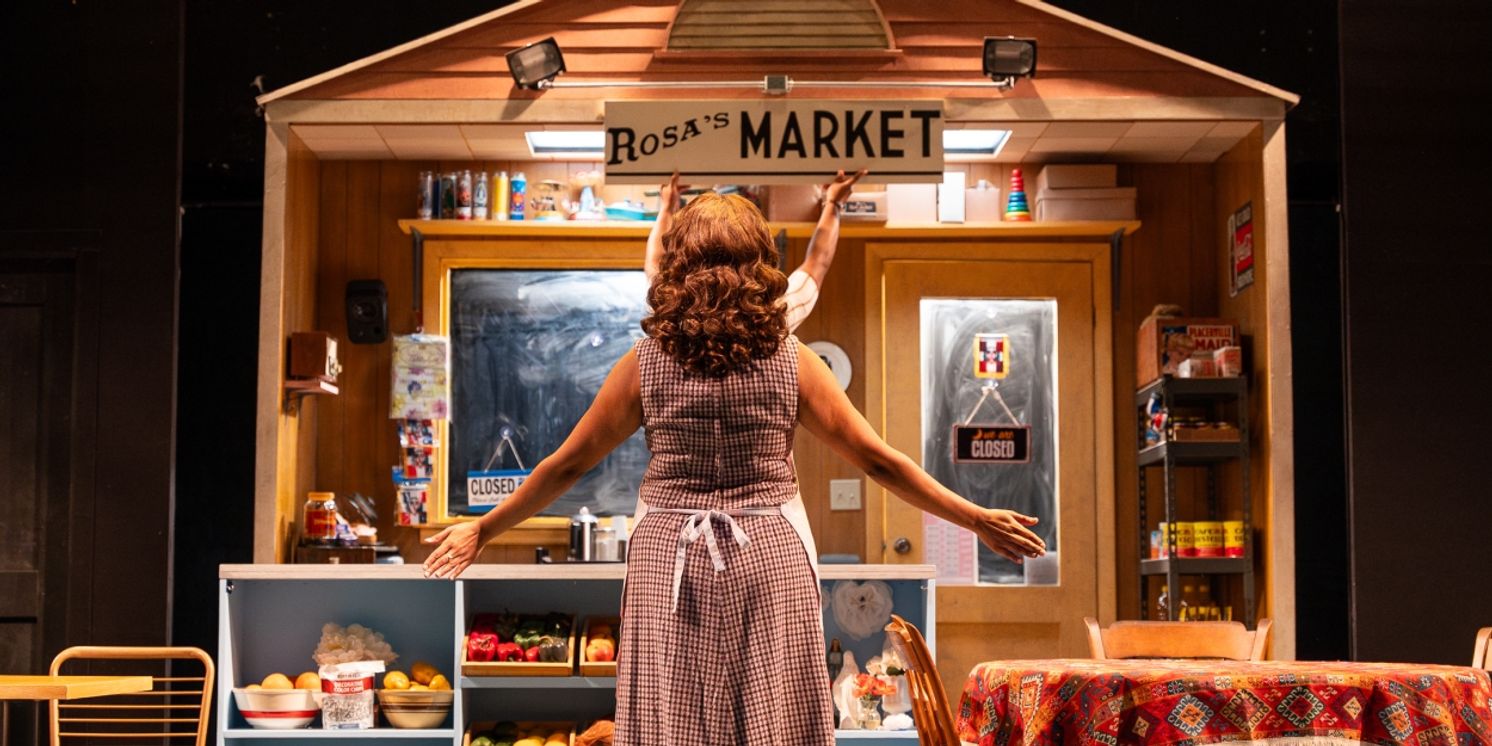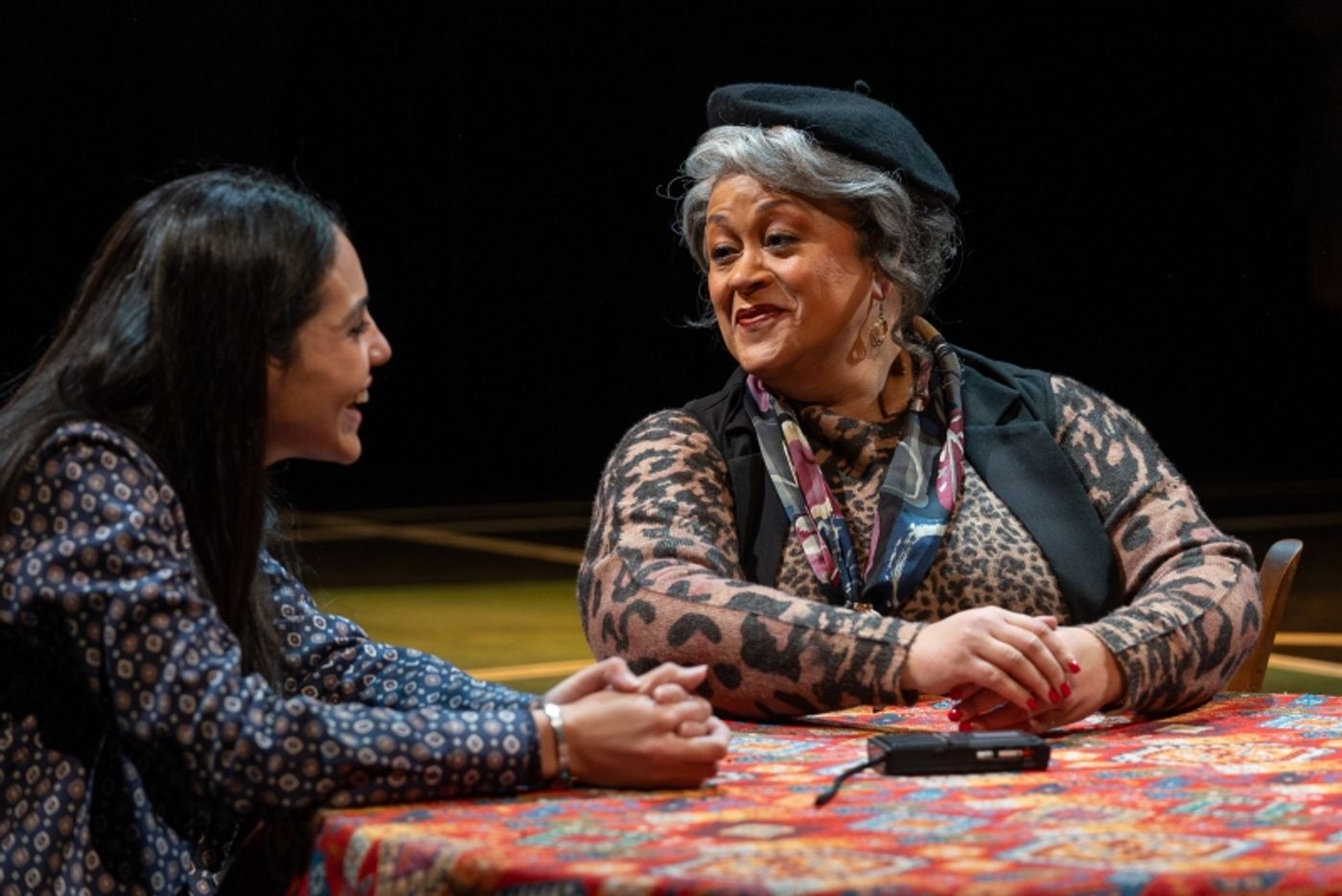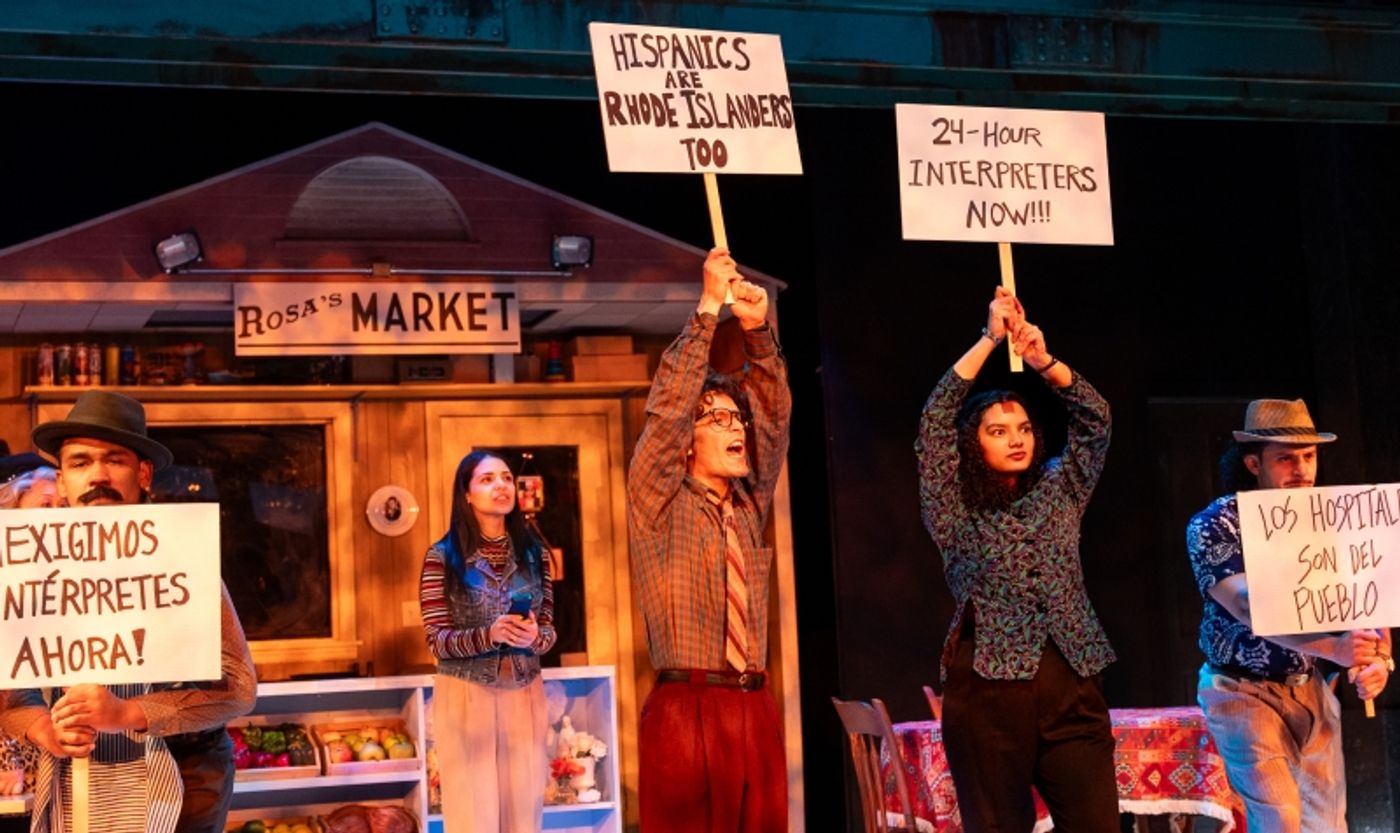Review: LA BROA' (BROAD STREET) at Trinity Repertory Company
Local Stories Glow with Universal Emotion at Trinity Rep

Opening night for La Broa’ at Trinity Rep felt like a party, a long-awaited homecoming for a community represented both on and off the stage. As the two actors in charge of introducing the play to the audience did so, they spontaneously engaged in a call and response with the public, inviting the voices of Rhode Island Latino attendees to join theirs in the space: “¿Dominicanos? ¿Mexicanos? ¿Boricuas?” they called, and the audience gleefully answered. It was a perfect start for a play that goes to great lengths to bring a deep communal local history to the stage by foregrounding the continuing dialogue between Rhode Island and its Latino populations.
A key theme in the play, that of solidarity, is introduced from its start when Ana (Rosalyn Tavarez), a journalism student at Providence College, runs into Doña Rosa (Alina Alcántara) as the older woman is trying to break into her shuttered market. A person is locked out of where she needs to be; another spontaneously offers her the boost she needs to get in. On the simplest level, this is what La Broa’ is all about: people who need a chance, and people who are willing to share theirs with them.
In La Broa’, these people are mostly Latino immigrants to Rhode Island. Contrary to what happens in the first scene, Doña Rosa is often on the giving side of the exchange. True to her generous personality, she immediately adopts Ana, luring her to her apartment with the promise of homecooked beans. There, she introduces her to her daughter, Lucrecia (Marina Tejada), and a whirlwind of friends who stop by their apartment for coffee, news, and company. Fascinated by Doña Rosa’s role as a doyenne of the community, and by her past as an entrepreneur, Ana decides to interview her for a school project. Entangled as Rosa’s stories are with her community’s, this portrait turns into a deep dive into their shared history of growing deep local roots, and an even deeper sense of kinship.

While Rosa’s and Ana’s stories provide an organizing structure for the play, the stage also welcomes multiples adjacent narratives. Subplots introduce other members of the community such as Carlos (Alexander Crespo-Rosario II), a political organizer agitating for social justice, Yolanda (Jen Anaya), a nurse making her way against racist exploitation so she can reunite with her family, Pacheco (Arturo Puentes), a musician with dreams of opening a record shop, and many others. While the struggles this description suggests are real, the play never feels heavy handed or melodramatic in its recounting of them, thanks to the humour infused in the script by Orlando Hernández, who adapted it from the Latino History of Rhode Island: Nuestras Raíces, a collection of oral histories directed by Marta V. Martinez for over three decades. This is not to say that the play shies away from darker emotions: there are certainly moments of grief in the lives portrayed on stage, and they are presented with honesty and vulnerability. However, the production never seems to lose sight that, through hardships, its characters persisted and found ways to flourish and to love. This hard-earned hopefulness is further served by the sharp comedic timing by a cast firing on all cylinders.

Also remarkable is the fact that the polyphonic density of the story never feels forced or disorienting. Here, too, much credit is due to the deftly structured script and to the cast, who finds a multiplicity of ways to make each character stand out without caricature. All the performances are excellent, and it feels unfair not to cite each of them, but this review will have to stick to the trio of protagonists for their heartfelt dedication to their characters. Rosa is played by two different actresses, Alcántara as the established “Doña Rosa,” and Tejada as the younger “Rosita.” Both revel in the generosity and quiet strength of their character, but Alcántara infuses her performance with a depth of feeling born from having lived through grief, where Tejada is freer to embrace Anita’s bounce and wide-eyed optimism. As Ana, Tavarez also convinces with her portrayal of the kind of ambition born from conscience and intelligence, rather than a thirst for status, too rarely seen in popular culture. A nod should also go to the costume design by Amanda Downing Carney for her work creating strong individual visual identities while maintaining a realistic sense of unity onstage. Her work converges with the actors’ to keep a dense play easy to follow.
The set designed by Patrick Lynch is also outstanding, at once completely natural in the theatre’s space and enveloping. Just walking in the room feels like an invitation to look for the elements installed in it—a couple of electric poles, a payphone, a disco ball—that foreshadow the action to come. Surprises await, too, in the way the stage platform will be used—but that is something for the audience to discover. Finally, a wall of older televisions at the back of the stage serves to effectively introduce historical events to characters and spectators alike. One regret is that an electric pole hides parts of the stage for a section of the audience. While it doesn’t compromise following the action, it feels like a shame to miss some of the actors’ performances for what is a committed homage to a community that never forgets that each of its member is a full person, not just a statistic or social position. This play is a must-see for anyone interested in the history of Rhode Island and its Latino community, and for anyone who likes thoughtful—and fun!—theatre.
La Broa’ (Broad Street) runs until February 18, 2023. Tickets are available online at trinityrep.com/labroa, at the ticket office in person at 201 Washington St. or by calling (401) 351-4242.
Header photo: Marina Tejada as Rosita and Jeff Ararat as Toño. Photo by Marisa Lenardson.
Reader Reviews
Videos
